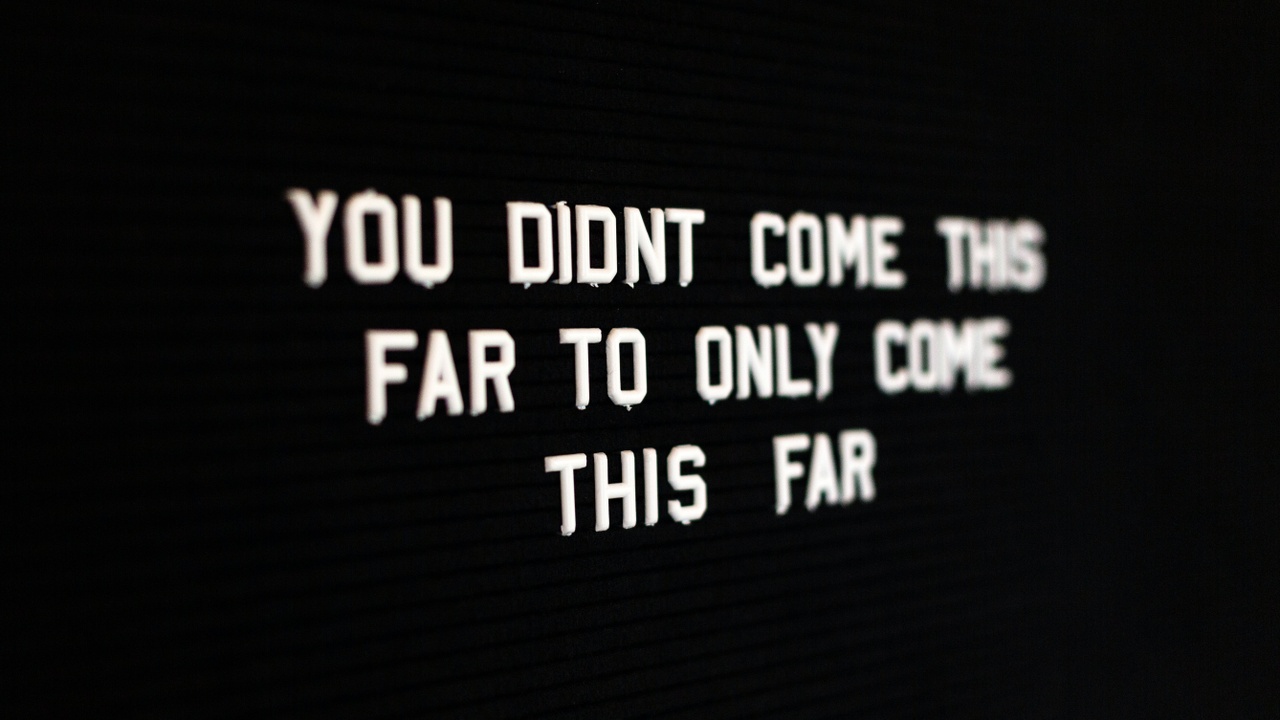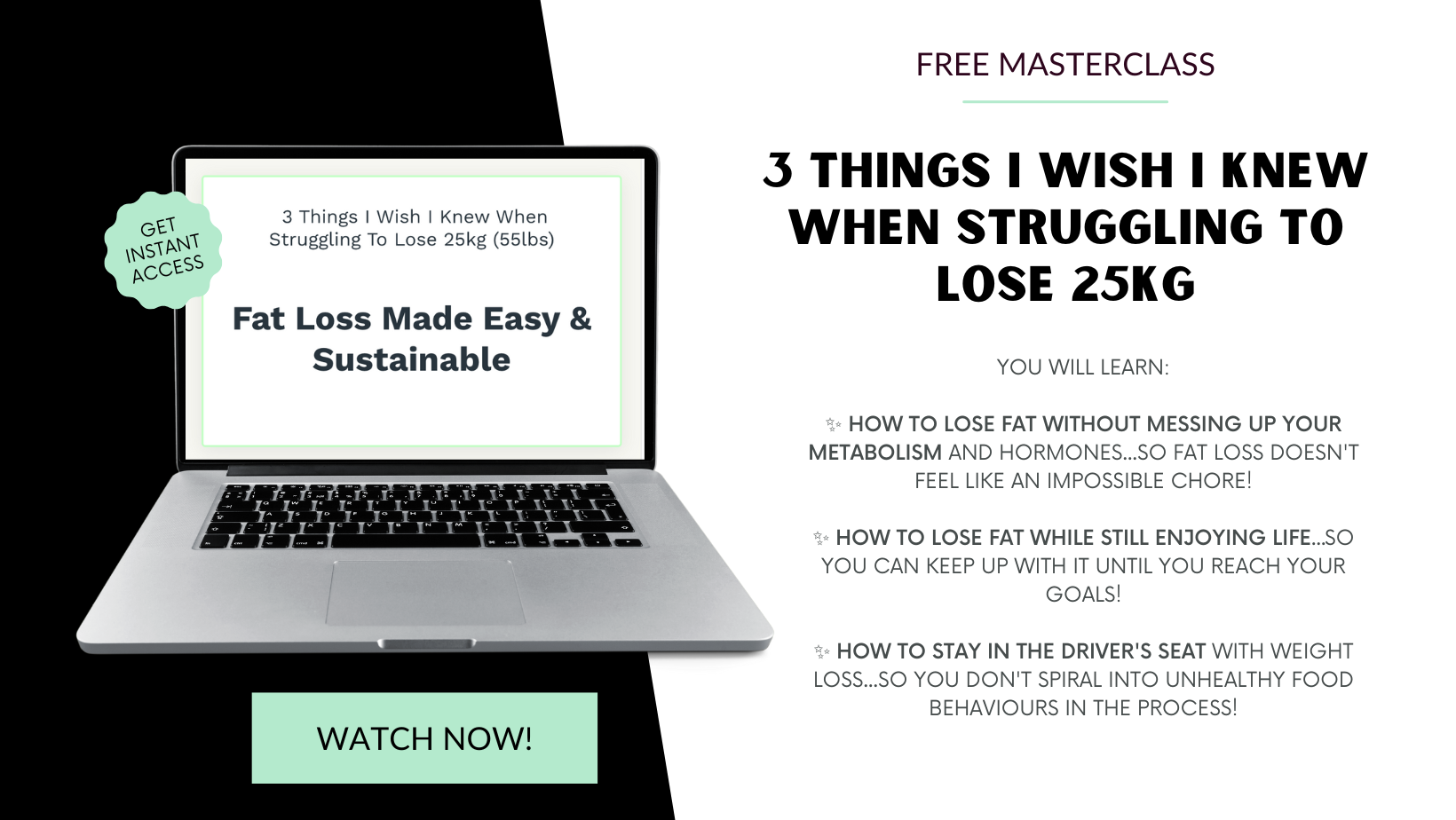How To Maintain Your Weight After Losing It: Common Pitfalls In Your Fat Loss Journey
Oct 28, 2022
Many people can lose weight - I know I lost 10kg a million times over. But how many can keep it off? Because I know that I also regained that 10kg a million times too!
Long term weight loss (maintenance) is an often overlooked part of the fat loss journey. We’re so focused on the methods, shortcuts, and secret tips to losing fat - but rarely learn about the maintenance phase.
After all, that is what we’re actually after right? Fat loss sustained in the long-term? No one wants to lose weight and regain it over and over - it’s exhausting and also unhealthy for the body.
In this post, we’ll talk about how to actually maintain your new weight after losing fat - no more yo yo dieting. We’ll also discuss common pitfalls that cause people to regain weight.
For context, I’m a Weight Management Specialist and Food Freedom Coach at the moment - but it wasn’t always smooth sailing. I spent 10 years struggling with bingeing, food obsession, 25kg weight gain. I was one of those people who were able to lose weight…only to regain it all and more.
I got pretty good at losing weight - but keeping it off was another story. I reached my ‘goal weight’ 2x over those 10 years - it was excruciating to get there. I felt on top of the world once I’d reached the weight but within a few months, I’d regained it. The final and third time that I lost my 25kg - I kept it off and have now for 4+ years effortlessly.
There were some key differences that set apart my failed attempts at weight loss and my successful one. We’ll talk about that later in the article.
WHAT IS A MAINTENANCE PHASE?
The maintenance phase in your weight loss journey refers to the end stage where you’ve lost a desired amount of fat and now want to maintain this new weight. It usually requires you to increase the number of calories you eat - particularly if you used calorie restriction as a fat loss method.
It may require you to shift your macros around if you used increased protein intake to lose fat. It may require reducing the amount of exercise you do - or keeping it the same but eating more food to compensate for expended energy.
Fat loss requires some form of a calorie deficit - there are no two ways around it. Whether it’s from food intake, exercise, better sleep, less stress, increased protein intake, or eating more whole foods. There are plenty of ways to create a deficit - even your microbiome can affect whether you’re in a deficit or not!
Your job in maintenance is to remove that deficit so your body is now using and consuming roughly an equal amount of calories. Whereas in fat loss, you were expending more than you were consuming.
HOW DO I KNOW MY MAINTENANCE CALORIES?
Now that you’ve finished losing fat and want to maintain this new weight - you need to figure out how many calories to consume so that it matches your energy expenditure.
One way to do this is through trial and error - to intuitively start to understand your body’s needs. If, for example, you lose weight through caloric restriction - you could increase your amount of calorie consumption and experiment to find out roughly how much food daily you need to maintain your weight.
While this helps with eating more intuitively, it is also quite a guessing game and risks weight gain if you overshoot with calories. But it also risks you staying in a deficit for too long if your underestimating maintenance calorie needs - which we do not want!
Another way is to use a calorie calculator online - input your new weight and other details, and it’ll output a rough calorie amount that your body will need. This is something I also teach in more detail in Sustainable Fat Loss.
WHY IS MY NEW MAINTENANCE AMOUNT LOWER THAN BEFORE?
You may notice that before weight loss, your daily calorie intake was about, let’s say 2,500 calories. But now that you’ve lost weight, the calculator is telling you it’s 2,200. Why do you need to eat less to maintain after losing weight? The fact is: A bigger body requires more energy to sustain it, and now that you’ve lost weight - you need less energy to sustain yourself.
HOW TO MAINTAIN MY NEW WEIGHT AFTER FAT LOSS
Here are 5 important tips to help you maintain your new, lower weight:
- You must rebalance your calories-consumed to calories-expended equation. For most people, this means increasing how many calories they consume. I know this can be scary to do as many fear ruining their progress and regaining weight by eating more.
I know I used to get so used to eating in a deficit that I couldn’t fathom that eating more wouldn’t cause weight gain. I was scared of eating at maintenance! But it is imperative that you do increase calories and keep them consistently higher.
- Increase calories immediately - in other words, don’t slowly inch your calorie consumption up to maintenance amount thinking ‘if I do it slowly, I’ll get used to it’. That is simply prolonging being in a restricted state unnecessarily. It could be weeks in a deficit while you’re thinking you’re in maintenance. Make a big jump immediately up to maintenance calories.
- Don’t enforce such a crazy weight loss plan. If your route to weight loss is so extreme, then by the time you reach maintenance it’ll feel like a relief where you'll rebound hard.
We do not want that because you’ll likely yo-yo from an extreme deficit state to a bingeing/over-eating state. Make your fat loss strategy so doable that once you get to maintenance - yes you feel excited, but you don’t feel the need to unleash the stress of dieting.
- Practice being in maintenance during your fat loss journey. This tip is often overlooked and it’s a concept we talk about extensively in Sustainable Fat Loss. If you’re taking you fat loss journey slowly (like you should), then your journey will likely take months. We don’t want to be in a deficit state for many consecutive months.
So I encourage you to take ‘diet breaks’ where you practice being in maintenance. Not only does it help you psychologically and physiologically in your journey - but it also gives you a chance to remember what maintenance is like so we don’t run into that issue where you fear being in maintenance. Remember - maintenance is what most of your life will be like (if we do this fat loss journey right) - so it’s worth practising it!
- Remember that your body takes time to relax into a new set point weight. The theory goes that, after a period of weight loss, your body wants to get back to its set point weight (the weight your body felt comfortable and steady at before weight loss). It takes effort to maintain a new lower weight before your body accepts it as your new set point weight. Some studies show that this can take several months to years.
Hopefully, you’re now more clear on what weight loss maintenance means in your fat loss journey - and how to succeed at it. If you want more help in sustainably hitting weight loss goals AND keeping it off - take a look at my comprehensive online course - Sustainable Fat Loss.
With Love,
Brid
Start your food and body healing journey with the FREE masterclass
"Why You're Still Binge-Eating & How To Stop"


